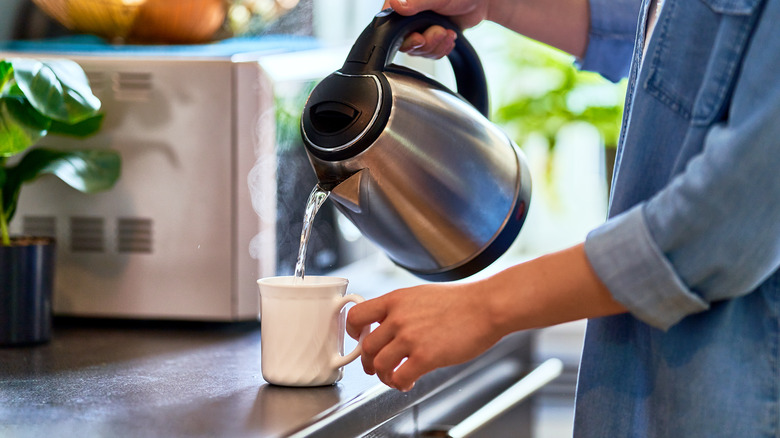The Real Reason Cold Water Tastes Better Than Warm Water
One can usually expect several standard characteristics of the dining experience in America: friendly service with a smile, especially since wait staff work for tips (which has a troubling history rooted in slavery); and getting immediately served cold water, usually with ice. Ice cold water is a preference of Americans, even in winter, and is the expectation to the rule rather than the norm, since other countries don't use ice cubes, as reported by Smithsonian Magazine.
The reason may be cultural, since drinking cold water is seen to be bad for digestion and Chinese medicine believes that pairing hot foods with cold water causes an imbalance, according to Heathline. Science backs this up, since cold water can aggravate migraines, make nasal mucus thicker, and can worsen achalasia, a condition that limits the body's ability to pass food.
But for many, ice cold water is refreshing on a hot day. Some would claim that it simply tastes better, and there's a scientific reason that explains why.
A preference for cold or hot water
While different bottled waters have different tastes, distilled water is meant to be tasteless. However, the purity of distilled water is compromised as soon as it leaves the distillery and when poured into a glass. Science ABC reports that cold water can suppress the unpleasant taste of any impurities in water, which are more easily detected when the water is warm. In short, cold water also suppresses the sensitivity of our taste buds, according to one 2015 study.
But the case for cold water preference isn't so clear-cut: cold water may actually be an acquired taste. After all, Chinese restaurants will serve water just below boiling temperature and many Chinese people will recommend hot water as a cure for many ailments like a sore throat or fatigue, per Cheng & Tsui. Whatever temperature you take your water, it's always a good idea to drink plenty of it, especially if you're concerned about heart health.

